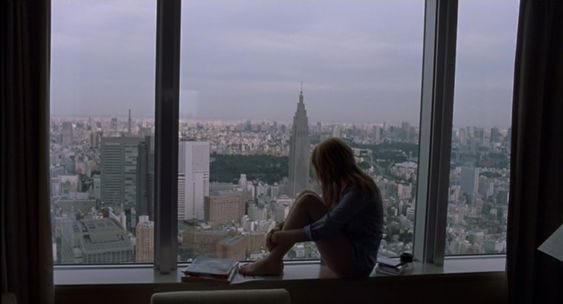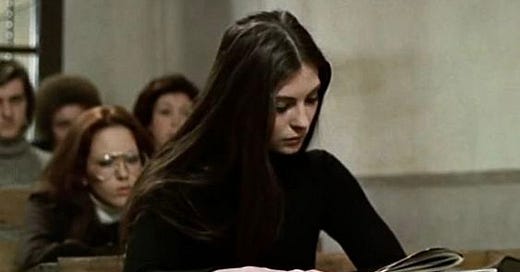hello.
today’s letter is short and sweet and filled with good reads to fill your noggin with brain food. i hope you can replace doom scrolling with article and substack and pinterest scrolling instead. it’s good for you, i promise.
don’t forget to eat breakfast.
and don’t forget tomorrow is my first ask me anything letter for paid subscribers. i hope you join me <3
read with me:
The Art of Fiction No. 228: Elena Ferrante
This interview with Elena Ferrante in The Paris Review offers an in-depth look at her writing process, inspirations, and the themes she explores in her work. Ferrante discusses her views on anonymity, the role of women in literature, and the complexities of human relationships. The conversation provides valuable insights into her acclaimed novels and the personal experiences that shape her storytelling.
The Paris Review
The Art of Fiction No. 182: Haruki Murakami
Haruki Murakami discusses his unique approach to writing, blending everyday reality with surreal elements. He reveals his influences, creative process, and the themes of loneliness and alienation prevalent in his work. Murakami also touches on his love for music and how it shapes his narratives, offering a comprehensive insight into his literary world. Problematic author, but nevertheless, an interesting read.
The Paris Review
Why Do I Let Myself Sabotage My Own Best-Laid Plans?
An exploration of the psychological mechanisms behind self-sabotage, particularly in relation to goal-setting and personal success. It delves into how fear of failure, perfectionism, and unconscious beliefs can lead individuals to undermine their own efforts. The piece offers insights into recognizing and addressing these patterns to foster more productive and fulfilling behaviors.
Aeon
On Breaking Philosophy Out of the Seminar and Back Into the World
The essay argues for the relevance of philosophy outside academic settings, advocating for its integration into everyday life. It highlights the need to make philosophical ideas accessible and applicable to real-world problems, emphasizing how philosophy can enrich public discourse and personal growth. By bridging the gap between theoretical discussions and practical application, the author suggests that philosophy can have a meaningful impact on society.
Aeon
Jack Schlossberg Is Just Being Himself
This article profiles Jack Schlossberg, the grandson of John F. Kennedy, exploring his personal and professional life. It highlights his efforts to honor his family’s legacy while forging his own path. Schlossberg’s candid reflections on his identity and public image provide a deeper understanding of his motivations and aspirations.
Vogue
The Devil Wears Prada Sequel: Everything We Know
This felt important. The article provides updates on the much-anticipated sequel to “The Devil Wears Prada.” It discusses potential plot points, returning characters, and the creative direction of the new installment. The sequel aims to capture the essence of the original while exploring new dynamics in the fashion world, keeping fans eagerly awaiting its release.
Vanity Fair
How Influencers and Algorithms Are Creating Bespoke Realities for Everyone
An exploration about how influencers and algorithms shape individualized experiences on social media, crafting tailored realities for each user. It delves into the implications of this phenomenon, discussing how personalized content can both enrich and manipulate users’ perceptions and interactions online. The piece highlights the intersection of technology, psychology, and culture in the digital age.
Wired
How the Brain Decides What to Remember
An explanation about the brain’s complex mechanisms for determining which memories to retain. It highlights the roles of emotional significance, repetition, and relevance in memory consolidation. The piece also explores how our brains prioritize information, using various cognitive processes to decide what becomes a long-term memory and what fades away.
Wired
The Cult of 5am: Is Rising at Dawn the Secret of Health and Happiness?
This article investigates the growing trend of waking up at 5am, examining its purported benefits for productivity, health, and overall happiness. It evaluates scientific evidence and personal anecdotes to assess whether early rising truly enhances well-being or if it’s just another wellness fad. The piece also considers the social and psychological impacts of adopting such a routine.
The Guardian
Believing Sylvia Plath: How Our Culture Continues to Blame the Victims of Male Violence
An examination of the persistent cultural tendency to blame victims of male violence, using Sylvia Plath’s life and legacy as a case study. It explores how societal narratives often shift accountability from perpetrators to victims, perpetuating harmful stereotypes and injustices. The piece calls for a reevaluation of these narratives to foster a more just and empathetic understanding of victimhood.
Lit Hub
The Weight We Carry: How Diet Culture Influences Disordered Eating
An exploration about the pervasive impact of diet culture on disordered eating behaviors. It delves into how societal pressures and unrealistic beauty standards contribute to unhealthy relationships with food and body image. By examining personal stories and cultural trends, the piece highlights the urgent need for a more compassionate and holistic approach to health and self-acceptance.
Lit Hub
Sad Boy Literature: Why Are We Still Drawn to It?
This article analyzes the enduring appeal of sad boy literature, exploring why readers are fascinated by narratives centered on melancholic, introspective male protagonists. It examines how these stories reflect broader cultural themes of masculinity, vulnerability, and existential angst. The piece also considers the criticisms and limitations of this literary trope, questioning its relevance and impact in contemporary literature.
Esquire

okay, that’s all for today.
if you’re not ready to become a paid subscriber and you have the capacity to leave a tip, that would be so appreciated. <3
i love you.
bye.





Thank you so much !!!
this is an awesome list! ty <3